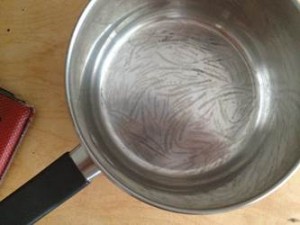\/\/\/\/\/\/\/\/Which key-notes would you like to share with all of us?
The most resonating key-notes I took are (in random order):
-Ornament is a verb – the making can release unmentioned unconscious thoughts and trigger reactions from other participants which result in deeper reflections. We make – there/for we are.
-The setting is important as it is part of the ornament – the scenery of Davos, the Kirchner Museum’s spaces and exhibited artworks, and in particular Thorsten made us feel at home. We are where we are.
-Stay Beta – giving the chance of notes instead of presentations, talks instead of panel discussions, sketches and models instead of finished results embraces the spirit of open source. Everything is a contribution.
-Become Craftswomen and Craftsmen (conf. Richard Sennett) – the making hand is part of the (research) body as is the strolling mind. Make to make and reflect.
-Train agility and versatility – future challenges are unforeseeable. Know what you make, take what you have and go for The Road not taken (conf. Robert Frost) where the unknown is already waiting.
-Monday Morning Mystic – plan the pause. Set the alarm to stop what you are doing and go for the being. Human being.
-Theoretical action needs practical action wants poetical action. The brick wants an arch (conf. Louis I. Kahn).
-Ornament is a trace (conf. the picture of my last weekend accident – I forgot the noodle soup on the stove). Let’s search for these patterns and activate the potential of ornament through gesture.
\/\/\/\/\/\/\/\/What is the relevance of WOF in your work? How do its aspects reflect in your current projects and how could you imagine integrating the questions WOF raised in future projects?
The questions and aspects from the WOF I would like to include in future research (projects) are:
-Learn to make and learn to read what is made – “Bildung” is what our students need, and it covers more than disciplinary transfer of knowledge but connecting to the students and connecting them to the sources. “Bildung” is our mission and responsibility.
-Trust the model. It will reveal. Nourish your inner pictures, poetically describe them and share them with others [thanks, Wendelin].
-Set yourself with some irritation. Not too much – but some. And listen to it.
-Go “super” (conf. the Super-Modulor). The magnificent failure (upon its reflection) is more than the hesitating attempt.
-Connectivity – how can the question of ornament and its preliminary answers from the WOF connect to relevant issues?
